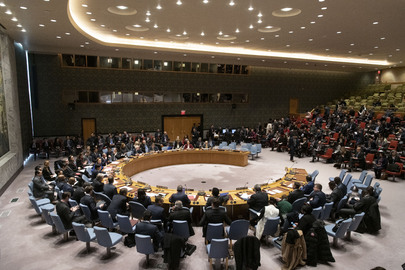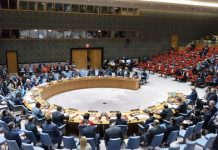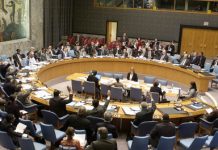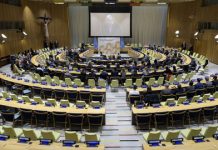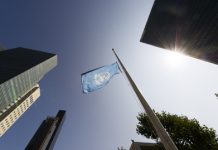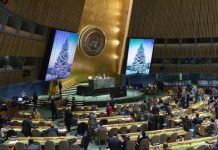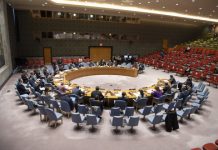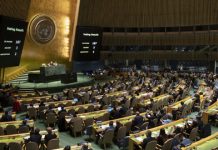West Bank crisis: UN chief calls for immediate halt to Israeli military strikes
As the crisis in the West Bank continues to escalate alongside the ongoing war in Gaza, UN Secretary-General António Guterres has called for an “immediate cessation” of Israeli military operations in the occupied Palestinian territory.
Mr. Guterres’s intervention late Wednesday comes amid one of the biggest Israeli Defense Forces (IDF) operations in the West Bank in years – the IDF insists against terrorists – with raids, airstrikes and drone attacks that have reportedly killed around a dozen Palestinians so far.
In a statement, the Spokesperson for the UN chief said that he was deeply concerned by airstrikes in Tulkarm and Tubas governorates which caused casualties and damage to public infrastructure. The UN Secretary-General also strongly condemned the loss of life, with children among the fatalities.
In his appeal for an end to the violence, the Secretary-General maintained that the latest “dangerous developments” were “fuelling an already explosive situation in the occupied West Bank and further undermining the Palestinian Authority” there.
The UN chief’s comments precede an emergency Security Council meeting on the escalating crisis due to take place in New York later on Thursday, at the request of the United Kingdom.
The UN chief also called for the “status quo” to be maintained at Jerusalem’s holy sites, expressing deep concern about “recent dangerous and provocative acts and statements” by Israel’s national security minister, after his recent visit to the Al-Aqsa Mosque, which is known to Jews as Temple Mount.
Afghanistan: more than six in 10 women feel unsafe stepping out of house alone, UN data reveals
To Afghanistan, where more than six in 10 women do not feel safe leaving home by themselves, compared with two in 100 men.
That’s just one of the worrying findings from UN Women, which also said that only one per cent of women surveyed feel like they have influence over decision-making in their communities.
The UN agency highlighted the data after the de facto authorities announced a new morality law imposing even greater restrictions on the Afghan population – and women in particular.
Condemning the edict, UN Women said that the new law required women to cover their entire bodies and faces, while also forbidding women’s voices in public.
Women are also prohibited from interacting with non-Muslims and from using public transport alone; they are also banned from looking at men they are not related to by blood or marriage.
For its report, UN Women contacted 745 Afghan women respondents from all 34 provinces. Eight per cent indicated knowing at least one woman or girl who has attempted suicide since August 2021, when the Taliban seized power.
Rates of unprotected sex among teens ‘worryingly high’: WHO
Finally, to the sensitive topic of teenage sex, which in Europe is causing concern among medical workers, because so many teens aren’t using a condom.
In an alert from the UN World Health Organization (WHO), it said that condom use among sexually active adolescents has declined significantly since 2014, with rates of unprotected sex “worryingly high”.
The result is that young people are putting themselves at “significant risk” of catching a sexually transmitted infection, unplanned pregnancies and disrupted education and careers, the WHO said, after surveying more than 240,000 15-year-olds across 42 countries from 2014 to 2022.
The UN health agency said that the data showed that “it is clear that the decrease in condom use is pervasive, spanning multiple countries and regions”.
One of the reasons is a reluctance in many countries to provide sex education in the classroom, the WHO maintained. Another is how well-off the teenager is, with some evidence showing that more affluent boys are “more likely to have had sexual intercourse and were also more likely to have used a condom”.
With more, here’s WHO Europe spokesperson Bhanu Bhatnagar:
“The sad truth here is that the report’s findings are not actually that surprising, because age-appropriate sex education remains largely neglected in many countries, and where it is available, it’s increasingly come under attack on the false premise that it encourages sexual behaviour.”
According to the WHO survey, sexually active adolescents who used a condom fell from 70 per cent to 61 per cent among boys and from 63 per cent to 57 per cent among girls between 2014 and 2022.
Data also indicated that almost one in three teens reported not using a condom or the contraceptive pill, a figure that has barely changed since 2018.
In 2022, one in five 15-year-old boys reported having had sex compared to one in seven girls of the same age.
Daniel Johnson, UN News.
Music composed and produced by Joachim Harris. All rights reserved
Source of original article: United Nations (news.un.org). Photo credit: UN. The content of this article does not necessarily reflect the views or opinion of Global Diaspora News (www.globaldiasporanews.com).
To submit your press release: (https://www.globaldiasporanews.com/pr).
To advertise on Global Diaspora News: (www.globaldiasporanews.com/ads).
Sign up to Global Diaspora News newsletter (https://www.globaldiasporanews.com/newsletter/) to start receiving updates and opportunities directly in your email inbox for free.


